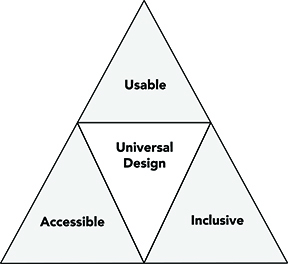Distance Learning
Online Education and Website Accessibility
Online Learning Strategies for Students with Disabilities
Over the last few years, postsecondary institutions continue to move many of their courses online. In this publication, some participants in projects supported by the DO-IT center at the University of Washington share their experiences and recommendations for other students with disabilities who are taking online courses.
How can students with disabilities arrange for accommodations in an online course?
Common accommodations students with disabilities request in online courses include the remediation of inaccessible PDFs and other documents into accessible formats, captioned videos, and extra time on assignments and tests. Accommodations should be requested in the same way they are requested for onsite courses. To receive accommodations from a postsecondary institution, students should contact the campus disability services office for information about documentation requirements and procedures.
Equal Access: Universal Design of Cyberlearning Projects
The Cyberlearning and Future Learning Technologies (Cyberlearning) program of the National Science Foundation (NSF) supports projects that integrate the capabilities of emerging technologies with advances in what is known about how people learn. These projects advance innovation, the understanding of how people learn in technology-rich environments, and broad use and transferability of new genres.
20 Tips for Teaching an Accessible Online Course

Improving distance education for students with special needs: A qualitative study of students’ experiences with an online library research course
Accessible Distance Learning
Motivations
Distance learning designers make courses accessible to students with disabilities:
Captions: Improving Access to Postsecondary Education
Professors, students, and IT administrators share the benefits of using captions on videos in postsecondary courses.